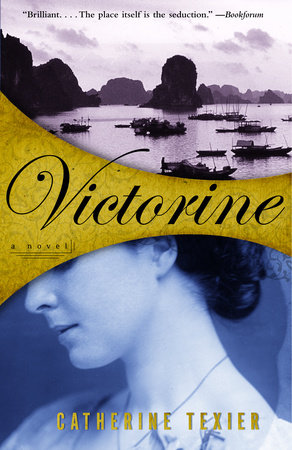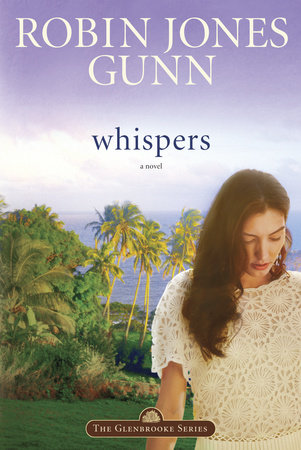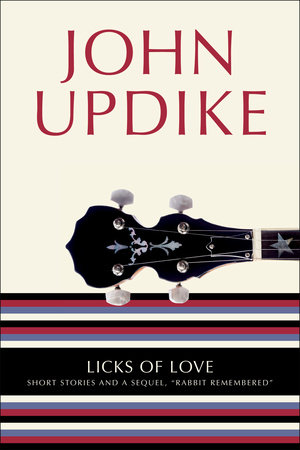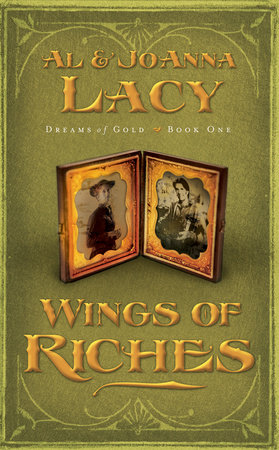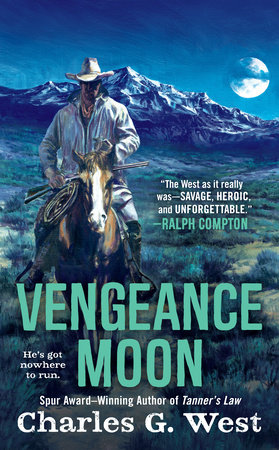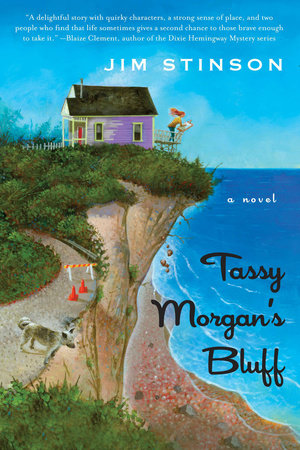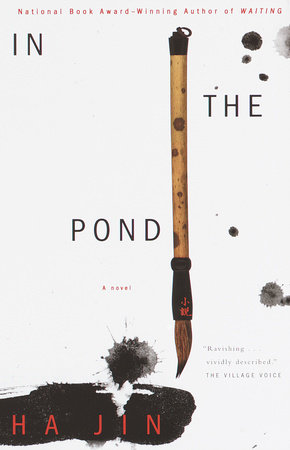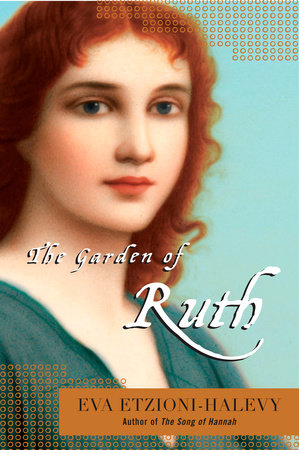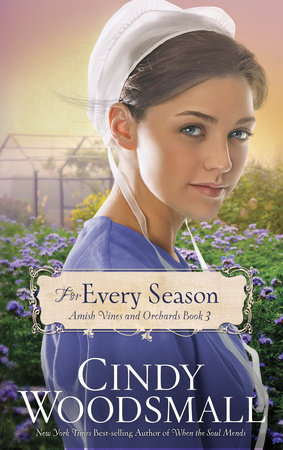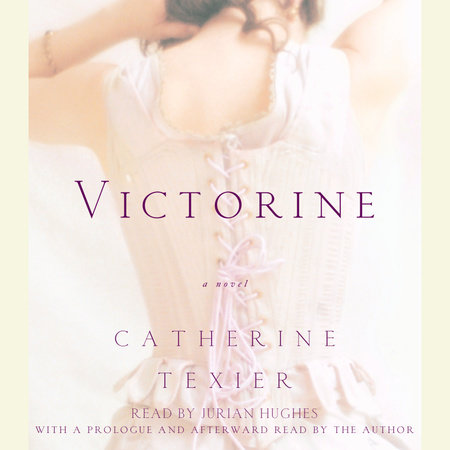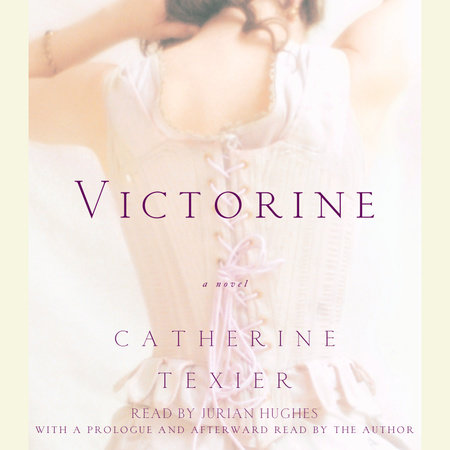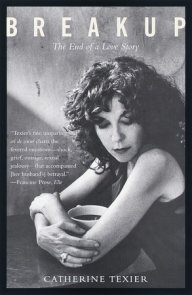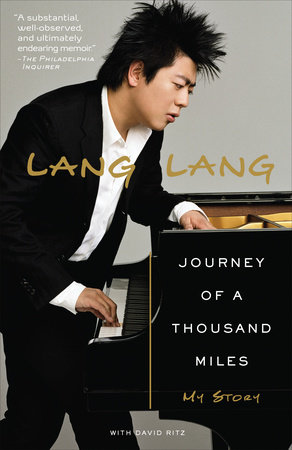Author Q&A
Q&A with Catherine Texier
Victorine was your great-grandmother. Since she died before you were born, how did you learn about her? Did her eldest son, your grandfather Daniel (who also figures in the novel), often talk about her?
My mother never married, and she and my father had already separated before I was born. So my grandparents (my mother’s parents) offered to raise me, and we moved from their Paris apartment to a villa in the western suburbs of Paris so there would be enough room for all of us. Occasionally, my grandmother would allude to Victorine, her mother-in-law, with a disparaging comment (she would say that she was a bad mother, or that she had abandoned her children), or an angry shrug, and my grandfather would defend his mother, or, more often, would change the subject. I was too young to understand what Victorine had done, or what had happened to her, but I remember this anecdote my grandmother liked to tell. Apparently, Victorine had had a younger son, Maurice, (he was in fact fourteen years younger than my grandfather Daniel) and she had raised him alone, after she separated from her husband. My grandmother’s opinion was that she had raised him too softly, as a “mama’s boy.” To prove her point, she would say that Victorine was still washing Maurice’s feet when he was twenty years old. Even as a child, I could pick up from my grandmother’s tone not only that Victorine had crossed a line that she shouldn’t have crossed with her son, but that perhaps she had crossed a similar line with men in the past.
It is my mother who told me the most about Victorine: that she had left her husband and young children in the late 1890’s, when my grandfather Daniel was about thirteen, and his sister, Madeleine, about eleven, and they had been put into a boarding school. Victorine had later come back to her husband, to have this younger son, Maurice, in 1901. My mother had heard that Victorine had fallen in love with a customs officer, and had followed him to Indochina. In another version, it was New Caledonia. In any case, a few years after Maurice was born, Victorine and her husband, Armand Texier, separated for good. She raised Maurice by herself, and Armand had three other children with a woman who had been his housekeeper. My grandfather often talked about that woman, and he helped her children at various times along the years.
What compelled you to write Victorine’s story as a novel? How much of this novel is based on her history—or the whispered stories you’ve heard and the photographs and postcards you’ve seen and read—and how much is fiction?
The only thing I knew when I set out to explore Victorine’s life was that she had left, and then come back. And even that was far from being an acknowledged “fact”, since when I met her grandson René (Maurice’s son) he seemed not to know she had ever disappeared. By the time I became interested in telling her story, both my grandparents had passed away, and no one of their generation was still alive. My mother, though, knew for certain, from her father, that Victorine had left during a certain period of time – several years, she strongly believed. The other facts that were confirmed to me by the various family members I was able to talk to were the following: Victorine had two sisters (I have their birth certificates); the Jozelon sisters had the reputation of being légères, fun-loving and a bit loose; Victorine was born in a village near Cholet in August 1866; her father was a painter of carriages (the little painting of the three Musketeers I describe in the book is in my uncle’s possession); she had been the youngest schoolteacher in France; she had lived in a little bungalow, Villa Saint-Claude, by the beach in La Faute; and she died in December 1940 during the German occupation at L’Aiguillon-sur-mer.
I made up the rest.
How have your family members reacted to VICTORINE, the book?
None of my family members have had a chance to read the manuscript of VICTORINE. It is written in English, and most of them don’t read English! My mother (who spoke and read English) wanted to read it, but I didn’t want to show it to her until it was finished – and she passed away two years ago. I don’t know what she would have thought… I have taken so many liberties with the story and with the characters. It’s a novel. And it’s my own, very personal vision of those characters.
Reading VICTORINE one feels you possess great fondness for and knowledge of Vietnam. What drew you to Vietnam and why did you decide to set much of the novel there? What draws the characters to Vietnam?
Actually, I had never been to Vietnam when I started writing VICTORINE. She took me there. I planned a trip there two years ago to do research for the book. The rumor was that Victorine had gone to Indochina (what Vietnam was called when it was a French colony, from the 1850s till the fall of Dien Bien Phu in 1956) — or perhaps to New Caledonia. I decided to have her go to Indochina rather than New Caledonia. Indochina seemed so much more romantic and alluring. The French have always been infatuated with Indochina since they set foot in Southeast Asia. There’s an enormous fantasy and romance aspect to the relationship between the French and the Vietnamese (and not only from the French side, as I found out). That romance was not all frangipani flowers, floating mosquito nets, and boat trips on Ha Long Bay, however. There was a darker side, which had to do with opium, the smoking of it, and the use it was put to by the French administration to support the Southeast Asia colonization and economic development. So for my view of Victorine, Indochina it was. I went there and traveled in the South and the North, trying to soak up the atmosphere as much as I could in the short time I was there. I was taken around by two wonderful French-speaking guides who showed me the neighborhoods and towns still full of the French past. I stayed in colonial hotels dating from the turn of the century, and met with old men who still spoke a fluent and very elegant, slightly old-fashioned French and remembered the colonial times with surprising fondness – even if they disapproved of it politically. Of course, I couldn’t really tell if they were forgiving of the French or just being gently polite. Though a short visit wasn’t nearly enough time to discover a country as rich and complex as Vietnam, I was able to experience the weather and the food—which is absolutely exquisite—the smells and flavors—which are intoxicating—and the incredible hospitality and subtle sense of humor of the Vietnamese. And, needless to say, while researching Victorine I read a number of books about Indochina—history books about the French colonization in Southeast Asia, customs officers’ stories, novels written or taking place in Indochina at the turn of the century, colons’ personal journals and memoirs—and I re-read all of Marguerite Duras. I also paid a visit to the French overseas archives—a euphemism for French colonial archives—which are housed in Aix-en-Provence, in Southern France.
As for what draws the characters to Vietnam, I could only really listen to my own passion to see the world and live in other countries and other continents. The lure of traveling and discovering other horizons is very powerful in my family. My grandfather spent ten years working as an engineer in the boiler rooms of transatlantic steamers and brought back great stories of his travels around the world. (I stole his experience to give it to Antoine, Victorine’s lover, in the book). As a child, I was already dreaming of these far-away, exotic places he talked about, all these ports he had visited. I remember how the name Valparaiso had made me dream for so long, how I loved to hear the story of the monkey he had brought back from somewhere in West Africa, and who had died back home, sickened by the colder French climate. Add to this the fact that Victorine’s sister Angelina had gone to Indochina with her husband who was in the army, and one of her cousins, René, had had an important position in the French Education Department in Saigon. One of my uncles was a colon in Morocco until the country became free in the fifties. And my mother has also done her fair share of traveling.
I could easily imagine that this fascination with “elsewhere” had in fact come from Victorine herself. But there’s also a historical truth to that fascination. The late nineteenth century was the heyday of the French Empire. Thousands of French (a majority came from the Atlantic provinces, Normandy, Brittany, Vendée – perhaps because it was easier for them to board a ship, and the economy of those provinces was weaker) left for the colonies during that period of time. The movement was politically encouraged, of course—the new colonies needed willing and able bodies—and economically advantageous, but the romance of traveling to the East was powerful. You only have to read the journals of French writer Pierre Loti to feel it. And let’s not forget that it was exactly at the same period that the huge migration from Eastern Europe to America took place.
And how about Vendée?
Well, Vendée is another story! Researching the part of VICTORINE taking place in Vendée was both easier and more complex than the Indochina part. I talked to my family members who had known Victorine and was given letters, postcards and photos by my mother and by Victorine’s grandson René, Maurice’s son. I also read novels taking place in Vendée in the nineteenth century and early twentieth, personal journals and memoirs. But I also used my own memories.
Even though I grew up in the Paris area, both my grandparents came from Vendée. (They were in fact first cousins, my grandmother was – ironically – Victorine’s niece, as well as her daughter-in-law, and they had to ask permission from the Vatican to get married.) Vendée was—and still is—deeply Catholic and traditional. It was the only province in the France that opposed the French Revolution. My own family had in fact been on the side of the Revolution, but there was often mention of the Chouans, the fierce resisters who came up against Robespierre in defense of the clergy and the King, and were ordered to be killed to the last man. Long ignored, the massacre of the Chouans is now recognized as a holocaust in the French history books. My grandmother was from Vouvant, and my grandfather lived in Gué de Velluire and in Maillezais – before studying in Nantes, working on ocean liners, and eventually settling in Paris. And our household was very much Vendéan. For instance, even in the fifties and sixties, when I grew up, an old-fashioned routine ruled the days: laundry on Monday boiled and stirred by hand in a tin washtub heated by coal; there was a day for polishing the silver and the copper and another day to do the windows; and every summer, the garden quinces and plums were stewed traditionally in the big copper cauldron. My grandmother was the keeper of the Vendée lifestyle, and the rest of my family often mocked her provincial ways and her superstitious faith. Hers was an almost pagan Catholicism. She regularly visited a rebouteux, which one could translate as a bonesetter, and used medicinal plants in various concoctions and decoctions when anyone of us was sick (and she certainly used them plenty on me) – she had a profound mistrust in modern medicine.
Every year I would go to Vendée with my grandparents to visit the family, in the summer and for All Saints’ Day. One of my earliest memories of Vendée is that of a very old woman wearing the traditional headdress of white lace rising high above her forehead, a long black skirt and a white apron. She’s sitting in the dark, in a high-back chair, to the right of the front door of a country kitchen, in contrast with the light filtering in through the window. With her hands quietly folded in her lap, the tight band of the headdress encircling her forehead, her face in chiaroscuro, she could be a character in a Vermeer or a Chardin painting.
When I went back to Vendée, a few years ago, to start my research on VICTORINE, I found it surprisingly unchanged: villages of gray stucco; flat fields under an overcast sky; at every other crossroad a Christ agonizing in white marble or some other white stone. As I approached the marshes and got closer to the Atlantic Coast, the air seemed to acquire a certain viscosity, as if my car was moving through water, forcing me to slow down. The small marshland houses were exactly as I remembered them, with their roofs hanging low, their whitewashed façades and bright shutters hidden behind weeping willows, and here and there, a bush of golden gorse.
I remember seeing a woman in a black shift and black canvas slippers, one day, in a marshland village. She was following a towpath, headed toward a house with royal blue shutters. Clogs of the same blue hang over the blue door and the mysterious words “Peace without Envy” were painted under the roof. The woman’s short, whitish-gray hair was set in tight waves. I watched her push the door open and disappear in the shadows of the house. She looked just like my grandmother had looked when I was a child. But it could have been Victorine, walking home one rainy afternoon, carrying a baguette or one of those heavier and thicker breads called bâtards.
Later I drove to La Faute, where Victorine had spent a few years after she retired from teaching. Walking on the beach at low tide, I remembered a snapshot of her my mother had given me, taken probably in the late 1930s, around the time she was living in her bungalow Villa Saint-Claude. She was wearing thick cotton stockings and a dress printed with tiny white birds, or umbrellas or windmills – the photograph was too small to tell – on a dark background. I imagined her sitting at the foot of a dune, one morning in September 1940, a few months before her death, a Sunday perhaps, and waiting for her younger son Maurice to pick her up for lunch. She would take out her knitting: now and then her eyes would drift off and she would watch the tide go down until the sea would be swallowed by the horizon, and she would remember.
That’s how VICTORINE was born.
Do you feel your French background influences your writing? Do you write in French or English? Being French yourself, what freedoms or barriers are there in writing in English about France and a Frenchwoman?
I had written a book of journalism in French, when I lived in Montreal before I came to New York in 1981. Then I went on writing my first novel in French. I switched to English to write Love Me Tender, in the mid-eighties. It felt extremely liberating to write in English at first. Finally I could escape the weight of French literature, which was so intimidating. English – American-English, particularly – is a remarkably flexible language, in as much as it is so open to influences and capable of incorporating them (French is more rigid, and is, of course, carefully controlled by the Académie Française). I felt I could write anything in English, without anyone looking over my shoulder. On the other hand, it puts limits on my style and vocabulary. Always I feel the influence of French when I write in English. It’s as though my French literary background was being filtered and altered through the prism of contemporary English. I felt that influence and those limits keenly when I was writing VICTORINE because I wasn’t writing about my New York experience, in the contemporary American language I had become accustomed to write, but about France, and the France of a hundred years ago. I was a voracious reader as a child, and I grew up with a passion for the nineteenth century and early twentieth century novel – I devoured Flaubert, Stendhal, Balzac, Zola, Proust – so many passages of VICTORINE came to me initially in French, because Victorine’s world truly comes from my childhood. In fact, I made a point of re-reading the books that she would have read, some of which I mention in the book: Les Malheurs de Sophie, Madame Bovary, Stendhal, the early Colette novels, Pierre Loti’s Orientalist novels, Jules Verne—all that French provincial longing for exotic romance and far-flung travels. Sometimes, when I was working on VICTORINE, I had to translate whole paragraphs back into English in my head before writing them. It was a painfully slow exercise, but I wanted to push the limits of the English I had used so far. I don’t know if I have succeeded. I didn’t grow up bilingual, I only started speaking English as a teenager, when I spent several summers in Wales. So the English I write is simpler than my French, in a way.
How does VICTORINE compare with your other written works? For those not familiar with your other work, what else have you written?
VICTORINE is my fourth novel. Chloé l’Atlantique (1983, in French) follows a young woman growing up near Paris and coming of age in New York, and trying to come to terms with two radically different visions of life and of womanhood. Love Me Tender (1987) is the story of Lulu, a young French go-go dancer, and her three lovers, older artist Henry, wild boy Julian, and Mario, a young Puerto-Rican whose child she will eventually refuse to carry. Panic Blood (1990) is about French chanteuse Eva and her daughter Mimi, whose black, blues-singer father reappears after having abandoned her. As in Lulu’s story, Eva’s raw and provocative sexuality conflicts with her deep ambivalence about motherhood and family ties.
I have also published a memoir, Breakup (1998). It is a frankly autobiographical book, and yet I wrote it as I would have a novel, aware that life, as it will, was making me replay the same story: the wife’s raw sexuality and her fear of abandonment, her obsession with her husband who loves another woman, make her cling to the marriage, until she can finally find the strength to face what she fears the most: finding herself alone to raise her two daughters.
VICTORINE is also a story of love and betrayal, of competing romantic entanglements. On the surface this new novel would seem to be a departure from my previous books because it takes place in 1900. And yet it explores similar themes: the irrepressible power of a woman’s sexuality, her deeply conflicted feelings about motherhood, her shame—as a Catholic—at having followed the way of the flesh rather than her maternal duty, her compulsion to punish herself for her sins. In a way, it is a return to my French roots.
